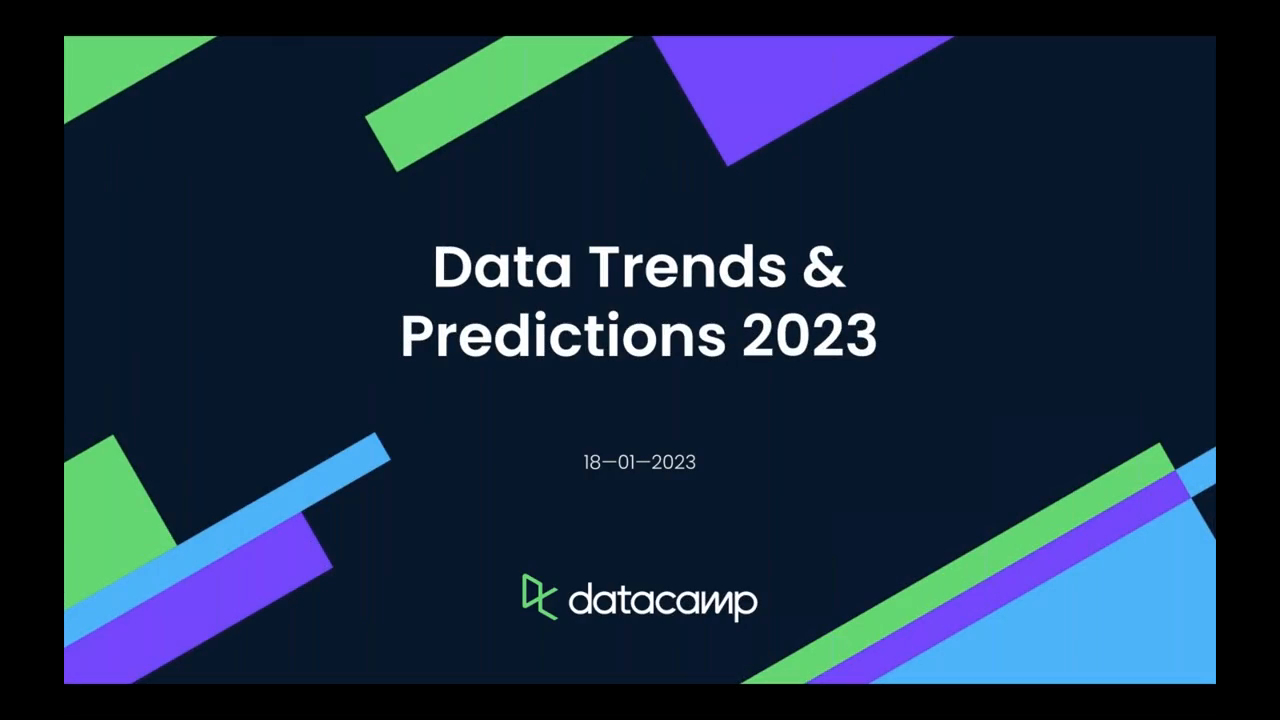Direkt zum InhaltWeitere Informationen





Lautsprecher
Trainierst du 2 oder mehr?
Erhalten Sie für Ihr Team Zugriff auf die vollständige DataCamp-Bibliothek mit zentralisierten Berichten, Zuweisungen, Projekten und mehrVerwandt
white paper
Data Trends & Predictions 2023
Read our trends & predictions that will shape the world of data in 2023white paper
2022 Data Trends and Predictions
Read about 9 trends shaping data science in 2022 and beyondwhite paper
2022 Data Trends and Predictions
Read about 9 trends shaping data science in 2022 and beyondwhite paper
Data Trends and Predictions 2021: The Year of Data Fluency
Read our take on the 2021 data trends you need to become more data fluent.webinar
Data Trends and Predictions 2022
9 major data science trends that will impact organizations in 2022 and beyond.webinar
The State of Data Literacy in 2023
Learn about what the future holds for data skills.Join 5000+ companies and 80% of the Fortune 1000 who use DataCamp to upskill their teams.
Loved by thousands of companies


